Easy Aerospace Grad School to Get Into
There are few professions that are quite as well-respected as that of the engineer.
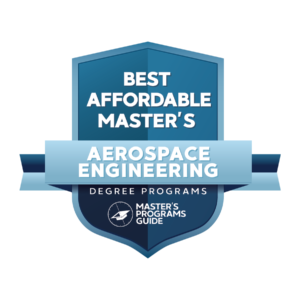
When it comes aerospace engineers, though—well, let's just say they really take the cake. After all, haven't you ever heard someone refer to a difficult concept as "rocket science?"
Choose to become an aerospace engineer, and you'll learn just what goes into that so-called rocket science as you learn how to design and build everything from airplanes to drones, helicopters to rockets, spacecraft, defense systems, and everything in between.
No two days will be alike when you pursue a career as an aerospace engineer. You'll not only need to have the skills in design necessary to figure out how various environmental factors will affect a product, but you also need the technical skills necessary to see if your design will actually hold water when it's tested in a real-world setting.
Of course, you need some business and logistical skills to be successful, too. As an aerospace engineer, you'll need to be able to evaluate how long a project will take and whether it can be done on time and within a specific budget. When you work in aerospace engineering, you'll also be responsible for meeting with customers to communicate all of these factors—from design logistics to budget concerns—in an effective way.
All things considered, there's a lot that goes into becoming an aerospace engineer. It's no wonder that this is one of the best-paying jobs you can pursue. You're going to have a lot on your plate!
Because of this, it can be tough to find the right master's degree in aerospace engineering—and believe us, a master's degree is absolutely necessary. You'll need this kind of advanced training to expose you to all of the challenging theories, concepts, and technical skills presented by the discipline, as well as to provide you with the hands-on experience and professional network necessary to land a job after you graduate.
Many students assume that in order to earn a degree in such a complex topic, you're going to have to pay a lot of money. That's not the case. You don't have to spend a fortune in order to land the career of a lifetime. You just need to find the right program.
There are lots of ways you can reduce the overall cost of attending college, from choosing a program with low tuition rates to applying for all kinds of scholarships, assistantships, and other forms of financial aid. Ultimately, you'll want a degree that not only offers an excellent return on investment, but also will provide you with the skills, experiences, and professional connections you need to be successful.
If you're looking for one of the most affordable master's in aerospace engineering, you've come to the right place.
See Also: 10 Best Master's in Industrial Engineering
Common Application and Admission Questions
If you're ready to start working on your applications to engineering school, you're probably chomping at the bit to get started. Not so fast—take some time to review each school's admissions requirements and to figure out whether you have what it takes to get in.
Don't apply to every single school that piques your interest, either. Visit each program (if you plan on studying on campus—this is less important if you want to study online) and make sure the degree is taught by faculty who care about their students and have the credentials you'd expect to see in an aerospace engineering degree.
Make sure you can afford the programs to which you are applying but remember that many schools consider students for financial aid as part of their application review process. When you're confused about any requirements a school might have listed on its webpage, it always pays to get in touch with the admissions department for more information.
While you might be tempted to submit an application to every program you're qualified for, resist this urge. Not only will those horrendous application fees really start to stack up, but it's only going to overwhelm you—not necessarily give you more options to choose from. Instead, select a few programs that interest you most (ideally one or two safety, target, and reach schools each).
To be eligible for a master's degree in engineering, you will likely have to have a background in a field related to engineering, such as mathematics, statistics, or, yes, engineering! A bachelor's degree in aerospace engineering specifically isn't always necessary, but you may have to submit proof that you successfully completed certain prerequisite courses related to this field.
Often you will need to supply scores from the GMAT or GRE exam as well. Each school varies in its cut-offs for admission, so check in to find out whether your scores will make the cut. While you will likely only be able to submit scores from within the last five years, you will want to give yourself extra time to retake the test if necessary to boost your scores.
Other materials you might be asked to submit include letters of recommendation, a personal essay, and a resume or CV. Some programs require that applicants have several years of work experience. Others aren't as selective in that regard but may ask you to come in for an interview with the admissions team or with certain members of the faculty.
And if you're an international student, make sure you take the time to carefully review the school's admissions requirements, as these sometimes change for students from out of the country. Look over each school's English language proficiency criteria and other requirements for admission.
You may be asked to take the TOEFL or a similar proficiency exam. It may also make sense for you to look for a program that is STEM-designated, since this will allow you to work in the United States for a period after you graduate.
See Also: Aerospace Engineering Master's Programs
What About Financial Aid & Scholarships?
One of the biggest concerns that most students going back to school have is the cost. Like most other graduate programs, a master's degree in aerospace engineering isn't necessarily affordable.
Fortunately, this kind of career is incredibly lucrative—you'll likely earn a salary somewhere in the six-figure range, potentially more as you acquire more experience. However, that kind of potential comes with a cost, and attending engineering school certainly isn't cheap.
The average annual cost of tuition for aerospace engineering programs can vary from $8,000 per year for public schools all the way up to more than $45,000 per year for a more expensive private university. Don't forget, you're going to have other costs to factor in there, too, like books, food, and housing, if you choose to live on campus.
It's important that you put in the work to make your master's degree more affordable. While some schools' financial aid departments will consider you automatically for their financial aid awards, that's not the case for them. In many cases, you'll be responsible for applying for your own financial assistance.
Your first step is to choose a program with low tuition rates, but remember that these aren't always listed as clearly as they could be. A school's "sticker price" is often a lot higher than what its "net price" actually is. For example, you may find that the private university with the high tuition actually ends up being more affordable for you , personally, because you ended up qualifying for an all-expenses-paid fellowship.
Before you start comparing costs, fill out the FAFSA, or the Free Application for Federal Student Aid. This document will use your financial information, such as your W2s and tax returns, to evaluate how much financial aid you might qualify for at the federal, state, and institutional level. Even if you don't think you'll qualify for much (or anything at all) it is important that you complete this document to the best of your ability.
The reason for that is this—many schools use the information generated by the FAFSA to determine whether you might be eligible for work opportunities such as fellowships, assistantships, and work-study. You may also be eligible for Direct Unsubsidized Stafford Loans. Although these loans do need to be paid back, the interest rate on these government-sponsored loans is often a lot lower than what you might find for a private student loan.
Don't overlook outside financial aid and scholarships, either. All kinds of civic, religious, and business organizations offer programs that can help make earning your degree just a little bit more affordable. Your own employer may even offer tuition remission, helping to pay for the cost of your college education in return for your commitment to work for them for a set period of time.
How Much Can I Make With an Affordable Master's in Aerospace Engineering?
One of the biggest questions you have likely asked yourself when it comes to returning to college for your master's in aerospace engineering is this—is it actually worth it?
Only you can decide that, but knowing how much you might be expected to make with one of these degrees may play a major role in your decision.
Most students who choose to earn master's degrees in aerospace engineering will go directly into the workforce building and designing missiles, aircraft, spacecraft, or systems for national defense. Most are employed in manufacturing or analysis and design but there are many that go on to work for the federal government or in research and development capacities.
A bachelor's degree tends to be the basic prerequisite for landing a job as an aerospace engineer. However, you'll often be asked to go one step further than this and earn a master's. Not only will earning a master's provide you with the technical and academic training you need to be successful in this field, but it will also give you the credibility necessary to obtain a security clearance, something that's often required for working in national defense.
Because so much training and work experience is necessary to enter into this competitive—yet highly rewarding and lucrative field—you can expect to earn an impressive annual wage of around $116,500 on average. The highest 10% of earners brought in more than $166,620 in 2019 while the bottom 10% earned around $72,450. Not too shabby, to say the very least!
Of course, you may find yourself working in a less hands-on capacity, perhaps engaging in research and development in the physical, engineering, and life sciences. These jobs are just as lucrative and easy to find—and only a master's degree will provide you with the hands-on training in research and academia that you need to be successful in one of these roles.
Although aerospace engineers generally work full time, those who direct or oversee projects sometimes have to work additional hours in order to monitor progress and make sure deadlines are met with the work meeting certain standards. You can increase your likelihood of finding a job by pursuing additional credentials such as training and certification in things like stress and structural engineering and computer software and programs like C++.
The job outlook for the field of aerospace engineering is equally impressive. Employment is expected to grow by about 3-4% by 2029. Although this is slightly less than the national average (and less than the growth for engineering in more generalized areas), there is still expected to be an increase in demand for employment of these professionals.
That's due in part to the creation and development of new technology that has made it possible for small satellites to have greater commercial applications along with a growing interest in unmanned aerial systems (or drones). Plus, aircraft are constantly being redesigned to be more efficient and effective.
The takeaway? Earn a master's in aerospace engineering, and your odds of finding a job will be quite impressive.
What Are the Best Affordable Master's in Aerospace Engineering Degrees?
We know that you have educational goals that you're itching to pursue, but you may not know where to start. The editors of Master's Programs Guide utilize a unique ranking methodology based on the following five aspects:
25% Overall Degree Affordability: Average cost of undergraduate and graduate tuition per school
25% Graduation Rate: Number of students who start at the university and actually finish there
20% Earnings Potential: Average mid-career salary of school alumni
20% Selectivity: The number of students who apply versus the number who actually get accepted
10% Online Graduate Offerings: The number of programs offered online in each department
At Master's Programs Guide, we strive to do our best to guide you and your family toward a fruitful academic career. The pursuit of knowledge is a noble one, and we want to help you reach your goals.
#1. Georgia Institute of Technology
Aerospace Engineering (MS)
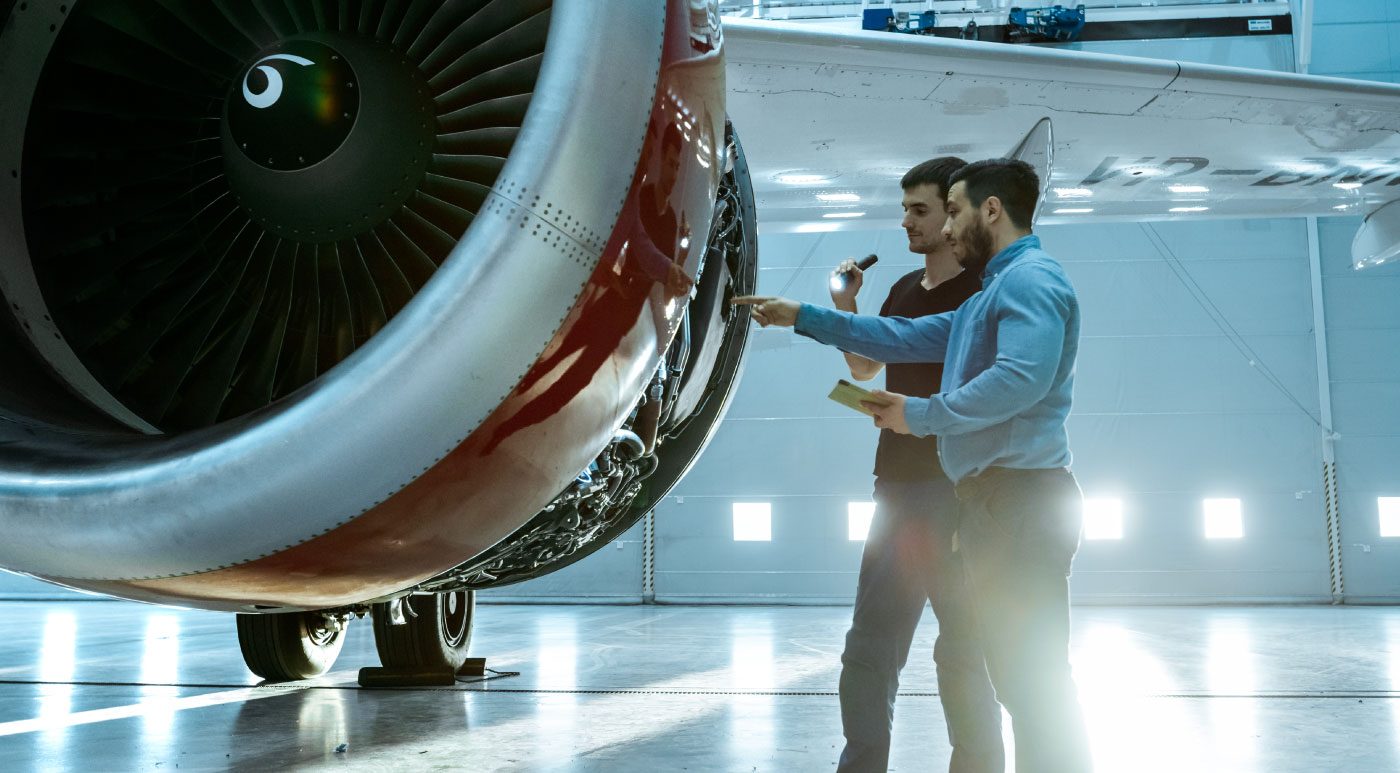
The Georgia Institute of Technology is a public research institution located in Atlanta, GA. With campuses in Savannah, GA along with China, Singapore, Ireland, and France, this school has humble origins but has grown to become a major player in the engineering education arena. In fact, when it first opened its doors in 1885, its primary goal was to provide a degree in mechanical engineering as part of Reconstruction plans. Today, the school has a whopping six colleges and 31 different departments and academic units.
Universally considered the best master's in aerospace engineering by a long list of ranking publications, the Master of Science in aerospace engineering at Georgia Institute of Technology is one you should add to your list of programs to consider. It is offered by the Daniel Guggenheim School of Aerospace Engineering.
The Master of Science in aerospace engineering at the Georgia Institute of Technology is a unique program that will allow you to specialize in a variety of fields, including fluid mechanics and aerodynamics, flight mechanics and control, structural mechanics and materials behavior, system design and optimization, propulsion and combustion, and aeroelasticity and structural dynamics.
Available both on-campus and online, this program is offered by the School of Aerospace Engineering, the same department known for offering the highly-ranked doctoral degree in this major.
You'll complete the master's with 33 semester hours of coursework, including three credit hours of "Special Problems" research credit. If you don't want to complete this research project, you can instead do nine hours of thesis work. Whichever you choose, you'll need to earn at least a 2.7 GPA in order to graduate.
You will take core classes such as Thermodynamics and Fluids Fundamentals, Technical Communications for Aerospace Engineers, Structural Analysis, and Introduction to Aerospace Vehicle Performance. You may also choose to participate in research assistantships or engineering competitions, both of which are offered for course credit.
You will have plenty of opportunities to get involved while you're studying on campus, too. This school has more than 200 registered organizations you can pursue, many of which are solely dedicated to the engineering discipline. You can broaden your professional network and make lifelong friends by joining campus organizations such as the American Institute of Aeronautics and Astronautics, the Vertical Flight Society, and the School of Aerospace Engineering Student Advisory Council, just to name a few.
Of course, you'll also have access to all of the phenomenal student resources when you choose to study at Georgia Tech, too, such as the counseling center, the Stamps Health Center, the Campus Recreation Center, and tutoring services.
This degree is affordable regardless of whether you choose to take classes online or on campus, with tuition billed at comparable rates. You will pay less than $700 per credit hour, in most cases, with plenty of financial aid opportunities for you to consider.
To apply, you will need to have earned a bachelor's degree or higher from a regionally accredited institution. Submit official transcripts along with GRE scores to apply.
#2. University of Virginia
MAE Graduate Program – Master of Science (MS)
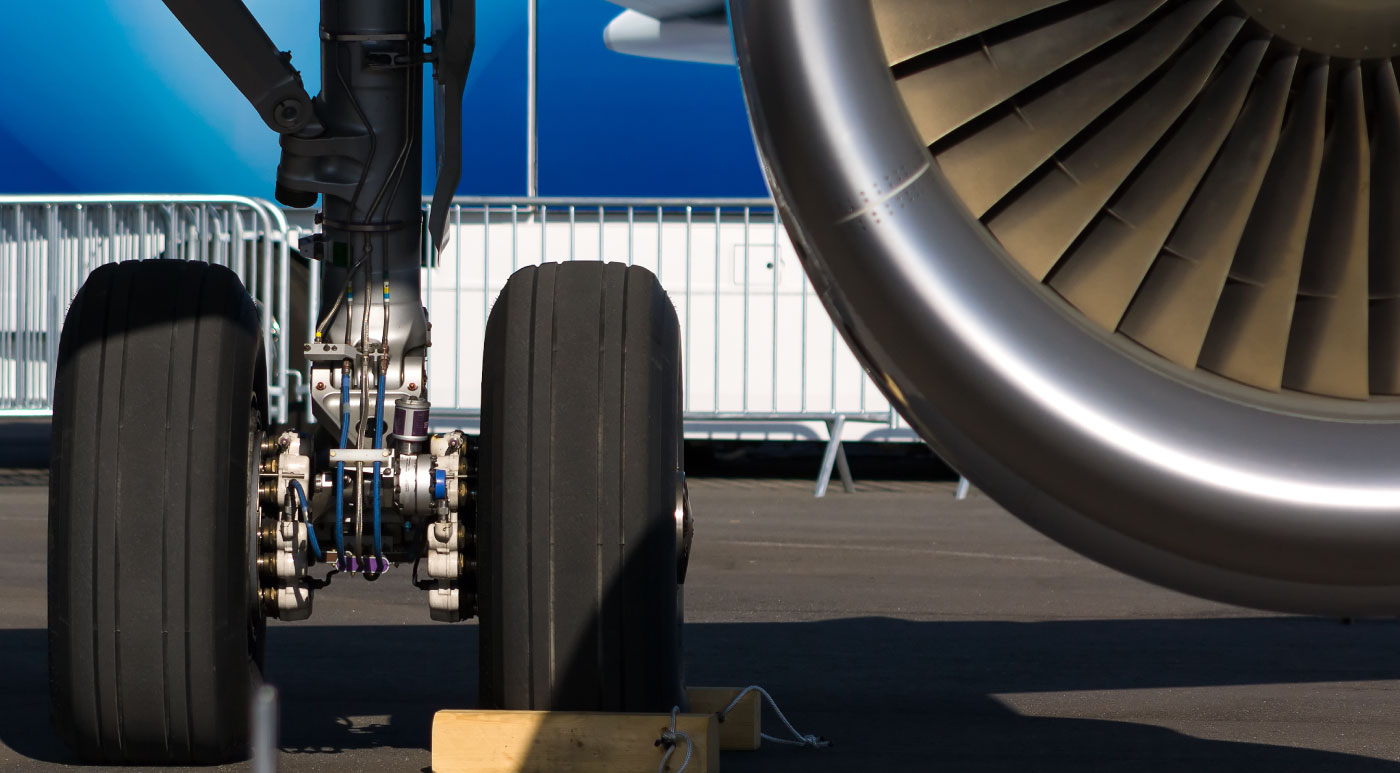
A public research university located in Charlottesville, VA, the University of Virginia was founded in 1819 by Thomas Jefferson himself. One of the oldest and most historic institutions of higher learning in the country, the University of Virginia offers more than 121 majors across its three professional and eight undergraduate schools.
When you graduate from UVA, you'll join a prestigious network of equally accomplished alumni. Past graduates have gone on to found organizations like Reddit and CNET, just to name a few.
The master's degree in aerospace engineering at the University of Virginia exists as a concentration in the Master of Science in mechanical engineering. In this program, one of the oldest and broadest disciplines, you will learn how to use principles of materials, energy, and mechanics to analyze, design, optimize, and manufacture devices and machines of all scales and types. You'll learn how to create technologies and innovations that can be used in defense systems, aviation, space exploration, and more.
The department offers both Master of Science and Ph.D. degrees in mechanical engineering in addition to a Master of Engineering. You'll be able to conduct plenty of independent research and to develop a final thesis or defense. In many cases, you may also be able to take classes in a convenient online format.
In your courses, you'll work with state-of-the-art computational, analytical, and experimental technologies. You'll take classes categorized in three areas: topical, numerical, and analytical math. When all is said and done, you'll complete 24 credit hours of coursework. Your courses and research will cover topics such as complex nonlinear simulation restrain optimization, collision injury mechanics, mechanics of soft materials, dynamical systems, fluid control, and more.
Curious about the resources you'll have access to on campus? The research facilities here are some of the best. Not only can you work in aerospace research facilities like numerous subsonic wind tunnel laboratories, a center for applied biomechanics, and an aerospace research lab, but you can also work in a control systems laboratory, an aerogel laboratory, and dozens of other options.
Classes are multidisciplinary in nature, meant to accommodate nontraditional students who might have undergraduate backgrounds in other fields of science or engineering. In order to be eligible for admission to this program, though, you will need to have some background in calculus-based physics and college mathematics through differential equations.
To apply, you will need to have an undergraduate degree from a recognized college or university. While it's best if this degree is in engineering or applied science, in some cases, degrees in other fields may be accepted. You should have at least a B average in order to be accepted.
You will need to submit transcripts along with three letters of recommendation, a statement of purpose, and scores from the GRE exam. An application fee of $85 is also required.
#3. North Carolina State University at Raleigh
Master of Science (MS) in Mechanical or Aerospace Engineering
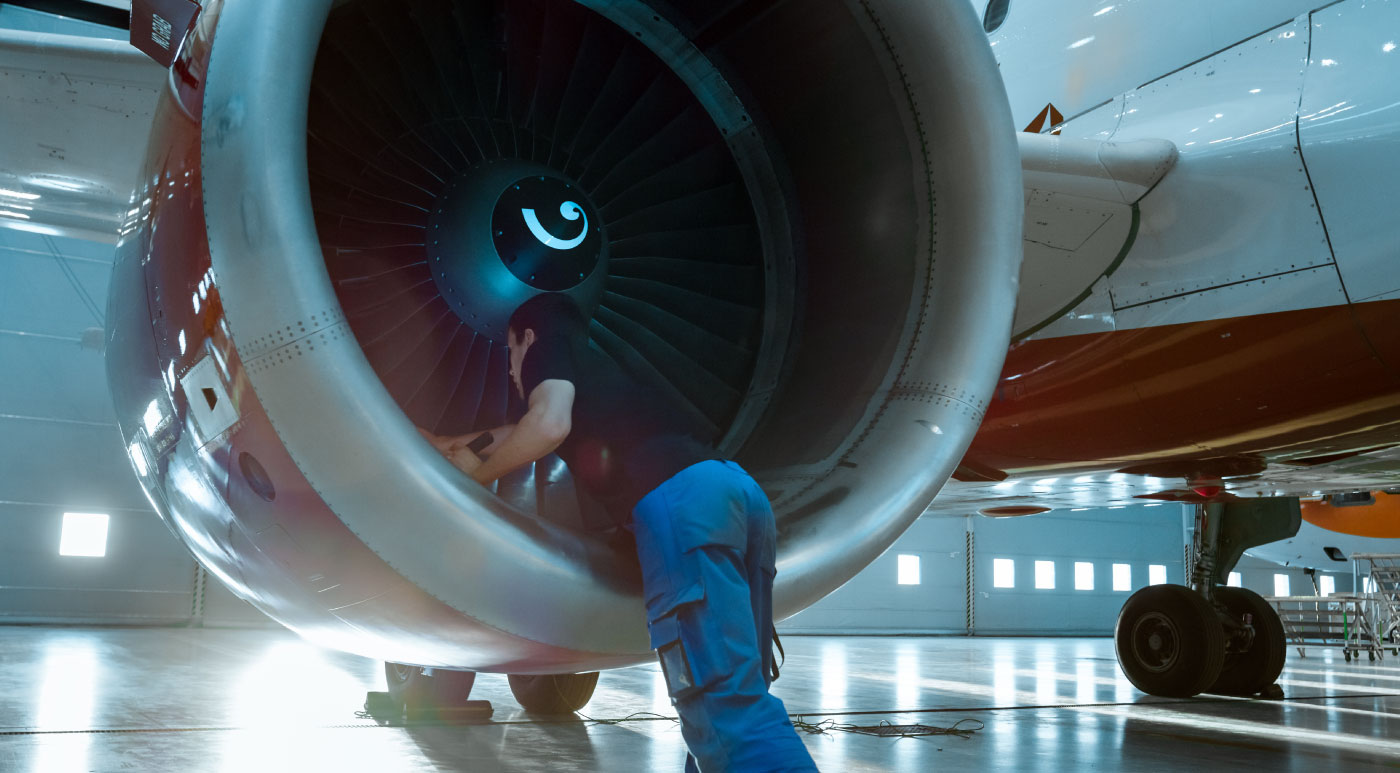
Located in Raleigh, NC, North Carolina State University at Raleigh was founded in 1887 and is home to more than 104 different master's degrees—one of which is the highly ranked Master of Science in aerospace engineering.
Choose to enroll in the Master of Science in aerospace engineering at North Carolina State University at Raleigh and you'll be expected to complete 30 semester hours to graduate credit, including nine in thesis-research work. You can also choose to participate in a minor in which you'll take up to nine credit hours of non-departmental support courses. You can take classes both on-campus as well as online in most cases.
You will work closely with a faculty advisor to develop a "plan of work" detailing the classes you will take and the progression you'll follow to earn your degree. You can complete an assistantship or fellowship, if you choose, too. These competitive programs offer students a wonderful way to earn course credit and receive a generous stipend toward the cost of admission, too.
The Department of Mechanical and Aerospace Engineering is the largest in the state and also one of the largest in the nation. You'll be able to participate in a variety of facilities and labs on Centennial Campus, working with a large body of faculty (members of which are all active in research).
You'll also enjoy access to ample industry partnerships. You won't have to worry about not being able to find a job after you graduate because the experience that you gain here will connect you with the region's top employers. Because of this, NC State is consistently ranked as one of the best values in higher education, marrying affordability and quality to offer high-value degrees.
While studying on Centennial Campus, NC State's research campus, you'll enjoy access to the Research Triangle Park, allowing you to explore further research opportunities with Duke University and UNC-Chapel Hill. You can participate in cooperative education and internship opportunities so you can work in the profession while getting your degree, or you can reach out to find your future employer at the Engineering Career Fair.
Not only that, but you will be able to participate in all kinds of study abroad opportunities and student organizations while studying here, too. NC State is home to numerous clubs and chapters of national organizations like the Aerial Robotics Club, the American Institute of Aeronautics and Astronautics, and the American Indian Science and Engineering Society, just to name a few. You can pursue a number of valuable certifications to add to your degree, too, such as the Professional Engineer license.
An affordable program, this degree has a broad range of financial assistance options for you to pursue. You might receive funding through fellowships, teaching assistantships, research or service assistantships, work-study programs, and loans. Tuition is low, too, coming in at just around $1,136 per credit hour in most cases.
To apply, you will need to have a GPA of at least 3.0 on a 4.0 scale from an accredited university. You'll need to have majored in a technical area, though a major specifically in aerospace engineering is not required. You will also need to submit three letters of recommendation along with scores from the GRE exam.
#4. University of Illinois at Urbana-Champaign
Master of Engineering in Aerospace Systems Engineering
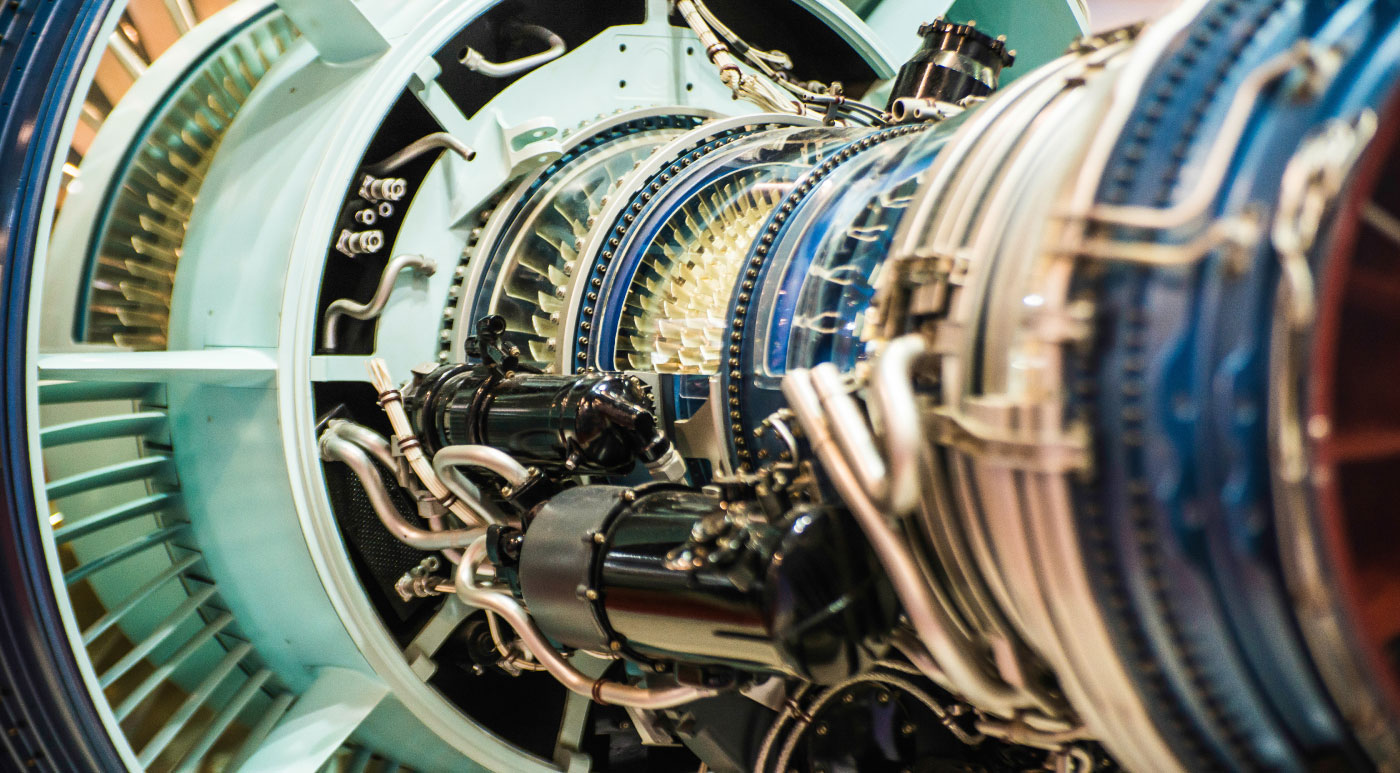
With 16 colleges and schools and more than 250 different majors to choose from, the University of Illinois at Urbana-Champaign is an excellent choice if you are looking for a high-quality, research-focused training in aerospace systems engineering.
This school has partnerships with some of the nation's top employers. In addition, the university operates a prestigious Research Park, which is home to innovation centers for more than 90 different start-up companies and multinational corporations, like Yahoo, State Farm, Caterpillar, Capital One, and more.
A professionally-oriented program, the Master of Engineering in aerospace systems engineering at the University of Illinois at Urbana-Champaign will provide you with a solid and interdisciplinary knowledge of aerospace systems engineering that you need to be successful in any setting. You'll take classes that will train you in aerospace systems analysis and in how to apply techniques for developing mission- and market-based aerospace systems, from start to finish.
You'll take classes that cover major concepts like functional decomposition, concepts of operations definition, requirement development, interface identification, and more. You'll be able to explore research in areas like structural design, electrical system design, space systems design, control system design, aerospace vehicle design, material design, and aerodynamics, too. In this, you will have the opportunity to work in state-of-the-art research facilities that have been known for their excellence since the department was founded in 1944.
A nationally-ranked program, it is highly interdisciplinary and so will prepare you for many different career paths. It's offered by the Department of Aerospace Engineering, a global leader in aerospace science and engineering. This department is home to ten separate nationally-ranked graduate and undergraduate programs and employs internationally-renowned faculty, too.
You will take 32 credit hours of study, completing a range of courses that will prepare you for work in optimization, reliability, design, human interfaces, data analysis, and networks. You will also take several classes of professional development coursework. In most cases, you can earn a professional master's degree, a non-thesis program, in just one year or three total semesters of study.
You'll be able to take classes both on-campus or online, or in a combination of the two. You can customize your degree with a wide range of electives and professional development opportunities, too.
This affordable degree has low tuition rates coupled with generous financial aid opportunities. You can apply for student loans along with other funding resources through the Office of Student Financial Aid, though fellowships and assistantships are not an option here.
When you are ready to apply, you will need to submit undergraduate transcripts with a competitive GPA based on the last two years of your undergraduate degree. GRE scores are not required, but you will need to submit strong letters of recommendation, a resume, and a statement of purpose.
#5. Iowa State University
Graduate Program in Aerospace Engineering
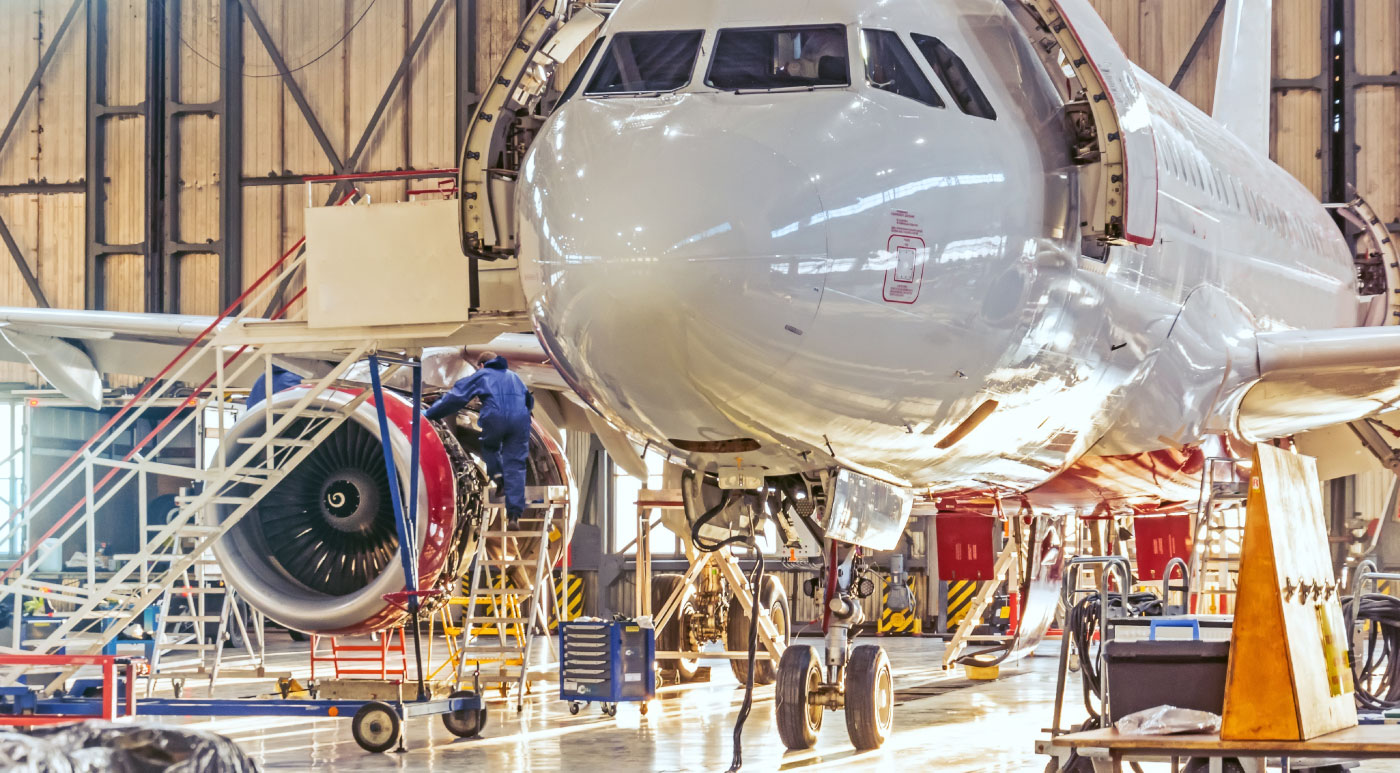
Iowa State University of Science and Technology, often referred to simply as just Iowa State, is a public land-grant research institution located in Ames, IA. The largest university in the state, it is a large school that offers nearly 300 different majors for undergraduate, graduate, and doctoral students to choose from.
There are plenty of excellent reasons to consider enrolling in the aerospace engineering program at Iowa State. For one, the College of Engineering here is ranked among the 205 best graduate engineering schools in the country—and it's 22nd when compared to public schools, according to U.S. News & World Report . Not only that, but the aerospace engineering program, in particular, is ranked as one of the best in the country by both U.S. News & World Report and the National Research Council.
If you're wondering why this program continually ranks among the nation's best, there are several factors to consider. For one, the faculty here are first-rate, regularly conducting research in in-demand areas such as complex system design, aircraft icing, tornado simulation, non-destructive evaluation, and more. As a student here, you'll be able to work closely with faculty on these areas of interest along with many others.
These areas of interest are primarily focused in six interdisciplinary areas, including advance materials systems; aerodynamics and aero-structural interaction; optimization guidance, controls, and aerodynamics; nondestructive testing and evaluation; and aviation biofuels. The department has more than $10 million in research expenditures each year.
Graduates go on to work in some of the most sought-after roles in the aerospace engineering industry, working for major aerospace and defense companies and government organizations like Lockheed Martin, Boeing, and NASA.
You will take core classes such as Wind Energy System Design, Airframe Analysis, Compressible Fluid Flow, Incompressible Flow Aerodynamics, and Computational Fluid Mechanics and Heat Transfer, just to name a few.
These research projects are funded both by government agencies as well as by industry partners. Because of this, you'll enjoy an affordable degree that will give you ample access to career-building opportunities. Plus, Iowa State's location lends itself nicely to a low cost of living. You'll also enjoy plenty of financial aid opportunities, including tuition scholarships, fellowships, and stipends. This program is affordable and an excellent value both for students from Iowa as well as those from other states or countries.
Your opportunities to learn here will extend to those outside of the classroom, too. You'll be able to participate in an exciting campus culture at a Big 12 Conference University, enjoying ISU Cyclones games (their football and basketball teams are some of the best in the country!). You can also set out and experience life in Ames, IA, where you'll have access to historic venues, shopping, recreation, cultural events, and more.
To apply, you will need to submit all of your materials by February or September, depending on whether you are interested in enrolling in a fall or spring admissions cycle. The GRE is required, as are official undergraduate transcripts.
#6. University of Southern California
Aerospace Engineering (MS)
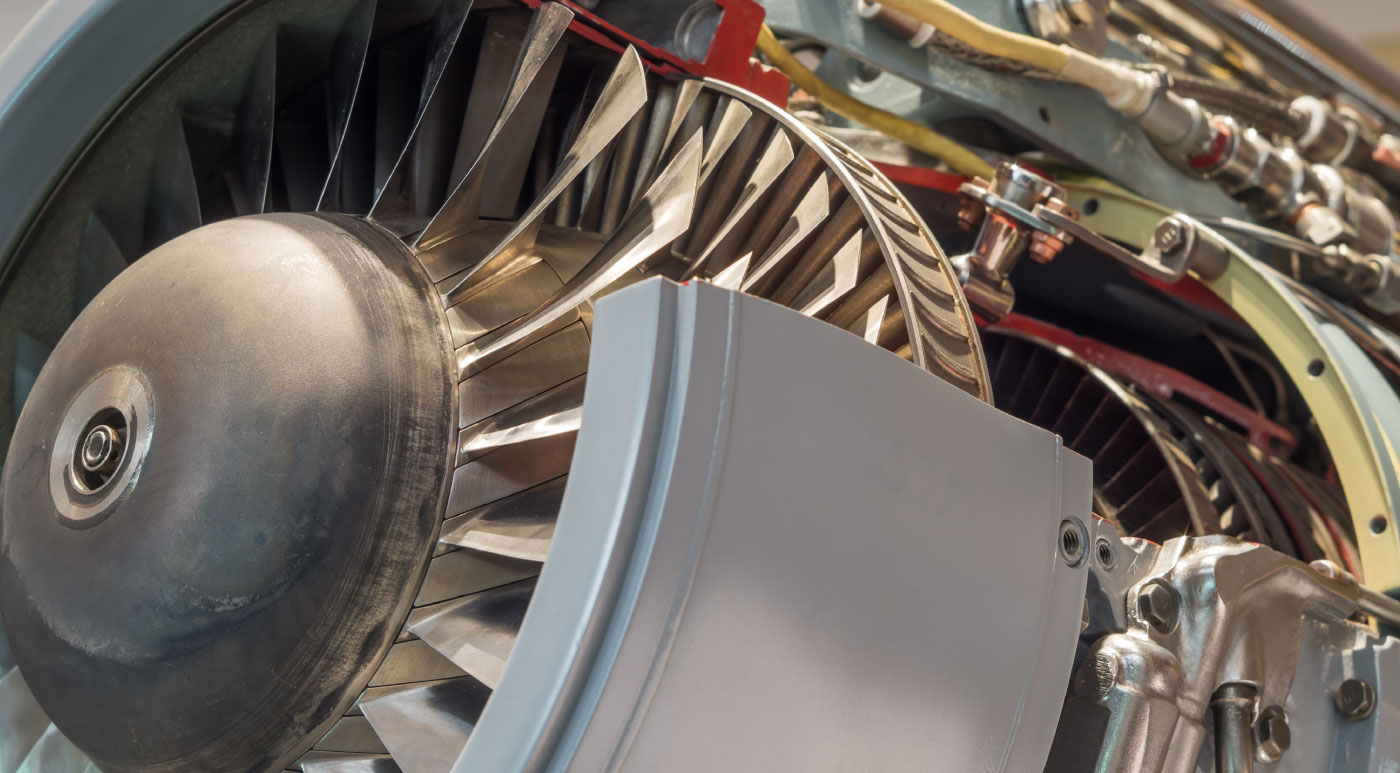
The University of Southern California, often referred to as USC or Southern Cal, is a private research university located in Los Angeles, CA. The oldest school of its kind in California, it was founded in 1880 and is one of the largest private employers in the state, too.
It's because of this and countless other reasons why USC is one of the top schools to choose from when it comes to an education in aerospace engineering. You'll find that this program provides you with some of the best industry connections, allowing you to work closely with major players in the aerospace and technology fields.
In fact, if you're looking for a school with the clout and connections to get you a job, this is the one to consider. Become a Trojan, and you'll be a Trojan (and have access to all of the benefits of being a USC alumnus) for life. A degree from this school is worth its weight in gold to say the least!
The Master of Science in aerospace engineering at the University of Southern California includes several areas of specialization, including aerodynamics/fluid dynamics, aerospace structures, aerospace controls, computational fluid dynamics, propulsion, hypersonics, and aerospace design. You'll complete a grand total of 27 units of study.
The degree is designed to give you broad exposure to at least two areas of study in aerospace engineering. A STEM-eligible program, it will also allow you to take a variety of technical electives to give you more experience in a range of disciplines. You'll build your skills as you work to establish and solve major problems in aerospace engineering by using modern tools and working with your peers.
It's just one program among many offered by the war-winning Viterbi School of Engineering. Other degrees offered by this school include those in financial engineering, petroleum engineering, astronautical engineering, biomedical engineering, and more.
Curious about the classes you will take? These may vary depending on the area of specialty you select, but some common titles include Dynamics of Compressible Fluids, Engineering Analysis, Compressible Gas Dynamics, Flight Vehicle Stability and Control, and Introduction to Computational Fluid Mechanics.
Of course, you'll be able to participate in a bevy of campus organizations here, too. Many students choose to join the aerospace engineering honor society on campus, Sigma Gamma Tau. If it's easier for you to work with, you can even choose to take courses entirely online.
No matter where you choose to study, you will find that this program has excellent outcomes for its graduates, nearly all of whom go on to find jobs before ever leaving campus at graduation. Alumni work all over the country for top employers like Raytheon Technologies, Lockheed Martin, The Boeing Company, Crane Aerospace and Electronics, and Blue Robotics.
This affordable program has low tuition rates of just $2148 per credit hour. To apply, you will need to have a minimum of a 3.0 GPA on a 4.0 scale. Submit undergraduate transcripts and an application fee along with scores on the GRE or GMAT. Letters of recommendation are also required.
#7. Texas A & M University-College Station
Master of Science in Aerospace Engineering
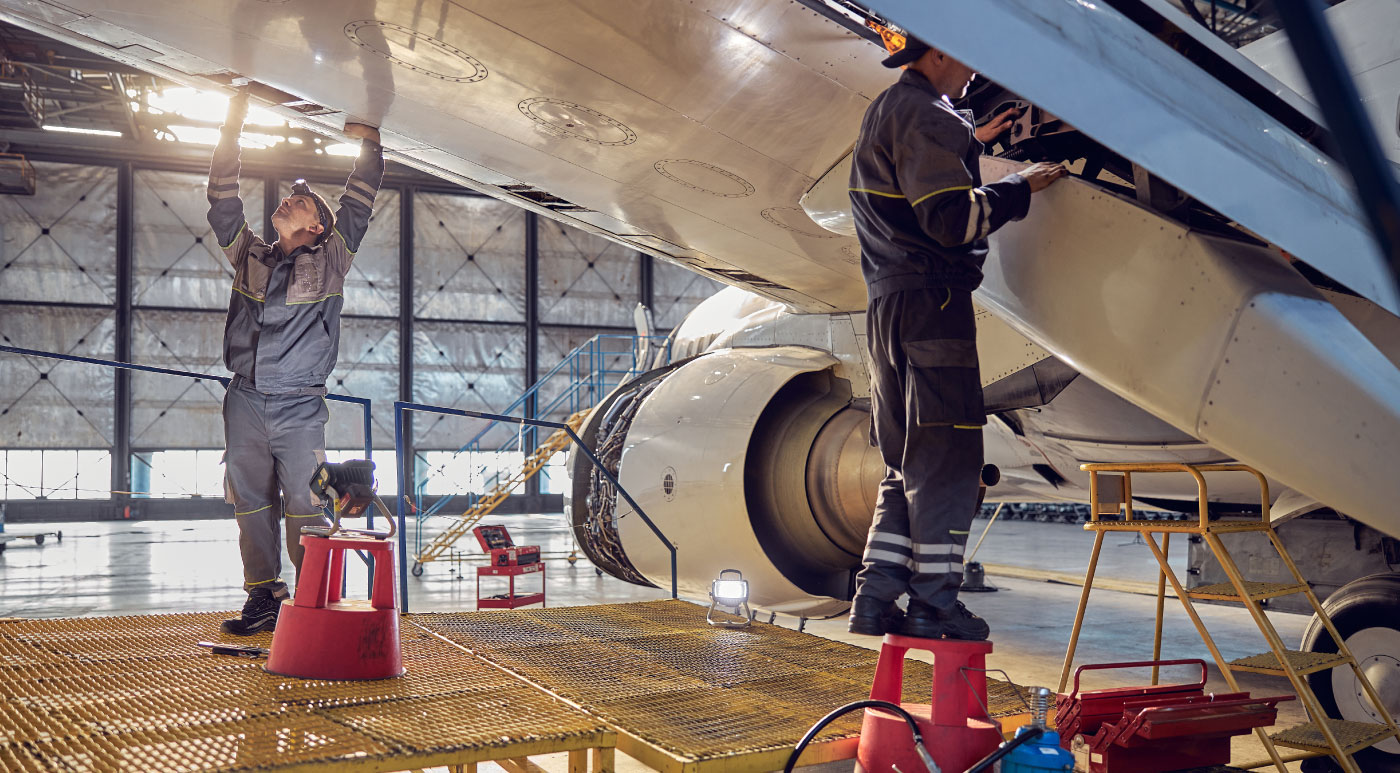
The Master of Science in Aerospace Engineering at Texas A&M University-College Station is a thesis-based program that will require you to earn a minimum of 32 credit hours of study. Twenty-four hours of this is formal coursework while the rest is research-based. You will both write and defend a final thesis and work closely with a faculty advisor to expand your understanding of the discipline.
As a student in this program, you will work in state-of-the-art research facilities alongside other students in the aerospace engineering department, a large division that includes both bachelor's and doctoral programs as well.
You will take a variety of classes to prepare you for doctoral study or work directly in the industry. Some examples include The Theory of Fluid Mechanics, Aerospace Structural Design, Theory of Elasticity, and Advanced Aerodynamics.
Graduates of this program go on to work at some of the country's largest and most prestigious aerospace companies and organizations. From NASA to Boeing, Lockheed Martin and more, you'll find Texas A&M graduates hard at work. Students participate every year in work-study programs in major design and production shops and at major aerospace companies. You will also be able to work in the many research centers and laboratories on campus such as the Advanced Vertical Flight Laboratory or the Aero and Fluid Dynamics Laboratory.
You will lend credibility to your diploma not just through the classes you take here but also through the organizations in which you participate. Texas A&M has a number of extracurricular organizations tailored specifically toward students in the aerospace engineering major, including the Aerospace Engineering Student Advisory Board, the Aerospace Engineering Graduate Student Association, and the Aerospace Engineering Student Ambassadors program.
In addition to the honors societies and other organizations mentioned above, Texas A&M is also unique in that it affords aerospace engineer majors the opportunity to participate in student-run organizations that aim to have a little fun, too.
You might join the Sounding Rocketry Team, for example, in which you can design, build, and test a high-powered rocket that will compete in the Intercollegiate Rocket Engineering Competition. Or you might join the Vertical Flight Society, the world's only international technical society for scientists, engineers, and others working on vertical flight technology.
An affordable program, this degree pairs low tuition rates with ample funding opportunities for undergraduates and graduates alike. Many students qualify for scholarships, fellowships, and assistantships geared specifically toward graduate students.
To apply, you will need to submit a formal online application along with transcripts and a resume that includes information about your work experience and past internships. You should provide information about any publications you have been featured in along with a resume, letters of recommendation, a personal statement, and TOEFL scores, if applicable. GRE scores are not required. Keep in mind that you will need to have a minimum GPA of 3.25 on a 4.0 scale to be eligible for admission.
#8. The University of Alabama
Aerospace Engineering and Mechanics, MS
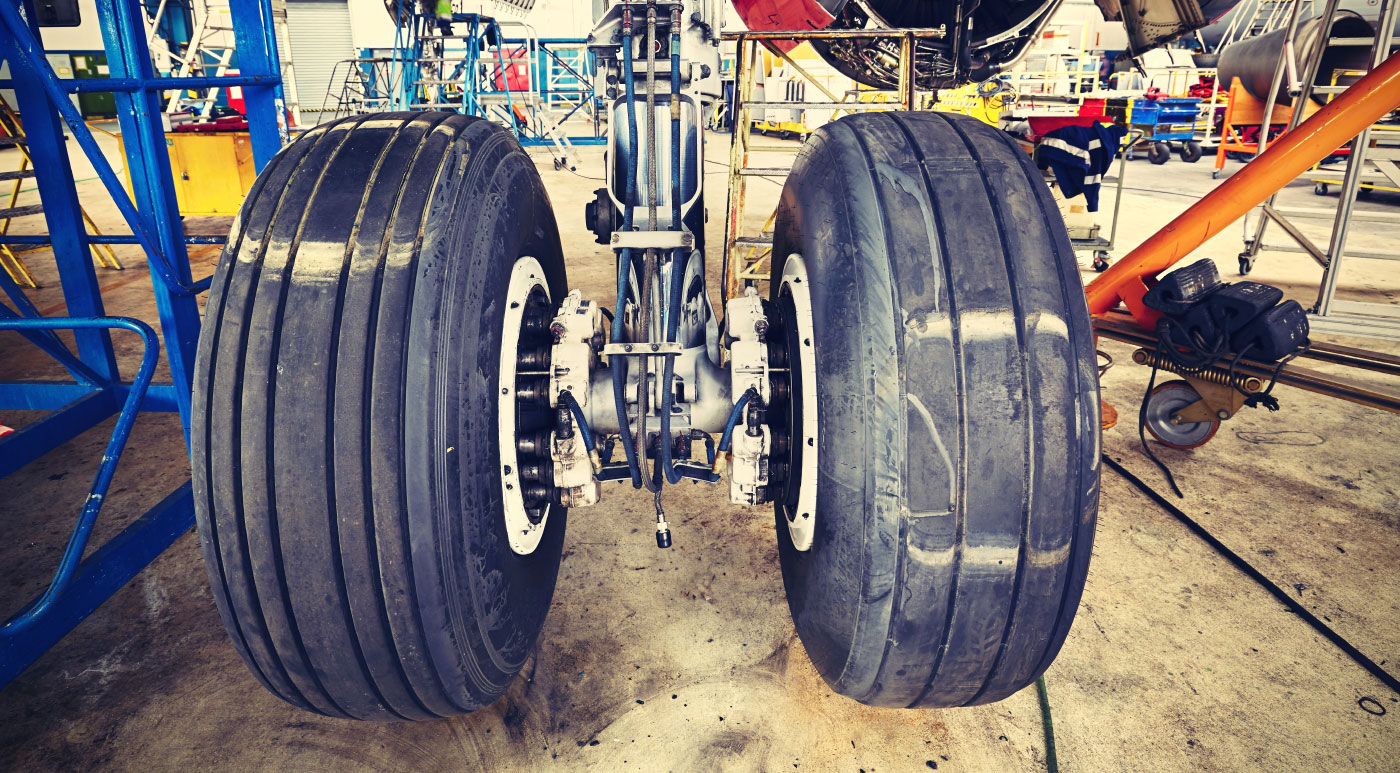
A public research university in Tuscaloosa, AL, the University of Alabama was first opened in 1831. The oldest and largest of all public universities in the state of Alabama, this school is also the flagship of the university system. You'll find more than a dozen academic divisions to choose from here, where bachelor's, master's, and doctoral programs are available in unique areas like Romance languages, social work, metallurgical engineering, and of course, aerospace engineering.
The Master of Science in aerospace engineering and mechanics at the University of Alabama is offered by the Department of Aerospace Engineering and Mechanics. It is available as both an on-campus program as well as one in a distance learning format through the College of Continuing Studies. A highly flexible degree, it makes it possible for you to earn your diploma by a coursework-only pathway or by taking a combination of courses and an approved thesis.
Choose to take classes online, and you'll be able to complete your classes on your own terms. All live campus lectures are recorded and then posted online so that you can work on your own schedule.
A 30-credit hour program, this degree includes core classes in both the aerospace and mechanics core. You'll take classes such as Orbital Mechanics, Airfoil and Wing Theory, Intermediate Fluid Mechanics, and Advanced Dynamics of Flight. Although the thesis, research-focused track is a popular option for many students, many others choose to participate in a comprehensive examination or culminating experience instead.
A convenient and flexible degree, it's offered by a department that has been producing leaders in aerospace and mechanics for more than two decades. You'll be prepared to work in any industry that designs or builds missiles, aircrafts, or national defense systems—even when you choose to take classes full-time.
This affordable master's degree has rock bottom tuition rates (just $420 per credit hour!) along with plenty of opportunities for financial aid. Many students who choose the thesis pathway ultimately qualify for assistantships, making it possible for them to gain experience and receive ample funding for the cost of tuition.
It is also a program that is uniquely transfer-friendly. You can transfer in up to 12 hours of graduate credit, allowing you to save time and potentially money if you've already completed some classes for your degree.
To apply, you need to have a bachelor's degree from an accredited university. If you do not have a degree in mechanical, aerospace, or civil engineering, you may be required to complete 12 credit hours of calculus, ordinary differential equations, statics, dynamics, and mechanics of materials and fluid mechanics in order to be eligible for admission. You will need a minimum GPA of 3.0 on a 4.0 scale and a GRE score of at least 300. There are three application deadlines each year—one each in the fall, spring, and summer.
#9. University of Colorado Boulder
MS in Aerospace Engineering Sciences
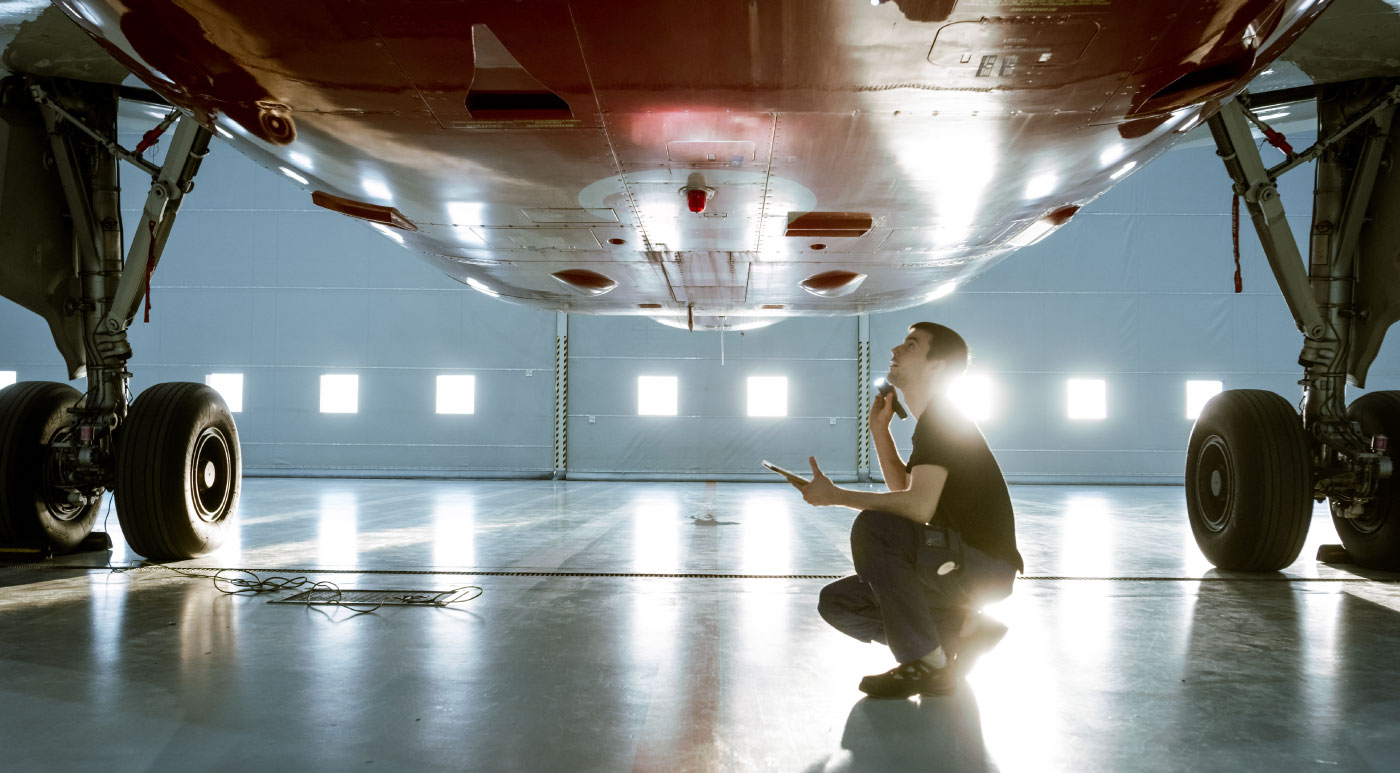
Founded in 1876, the University of Colorado Boulder has a legacy that predates even Colorado's recognition as a state. This public research university in Boulder is the flagship institution of the University of Colorado System and it's home to a variety of quality programs for you to explore.
The Master of Science in aerospace engineering sciences at the University of Colorado Boulder is one of the best in the country, offering a curriculum that's sure to impress. This program will teach you how to work in all kinds of complex aerospace and related systems. You'll learn how to design new technologies for use in defense systems, space exploration, and commercial aviation.
In addition, you may be able to specialize in fields like systems engineering, navigational guidance and control systems, propulsion systems, production methods, or many other in-demand areas. You'll learn how to work in the field throughout every step of the process, from planning all the way to creation and prototyping. You'll work in hands-on design classes and be able to compete in national competitions. You may participate in mission operations or even learn how to design and build satellites for launch.
With small class sizes and independent study options available, UC Boulder provides a thought-provoking learning environment where just about any student can succeed. The Department of Aerospace Engineering Sciences here is not only globally recognized for its education opportunities and research in aerospace engineering, but it's also ranked among the top four schools in the country by the National Research Council.
You'll learn from more than 40 faculty members and study with fellow master's and doctoral students as you engage in experiential learning to build your technical and organizational expertise. You'll be able to explore research areas like aerospace engineering systems, astrodynamics and satellite navigation systems, bioastronautics, and remote sensing, earth and space science.
The reputation of this program simply cannot be overlooked. The FAA selected this university as a Center of Excellence for commercial space transportation and it is one of the country's top five nonmilitary schools when it comes to producing astronauts, too.
In addition to the many opportunities you will have in the classroom and in the research laboratory, you'll also be able to participate in a range of extracurricular activities. You can join the student chapter of the American Institute of Aeronautics and Astronautics or participate in fun clubs like CU Students for the Exploration and Development of Space.
Not only that, but this program is incredibly affordable. The university offers significant amounts of financial aid which, coupled with low tuition rates and excellent career placement percentages, is enough to provide this program with a phenomenal return on investment. Plus, students and faculty here frequently win grants for their research, providing additional opportunities for funding and for you to get involved in hands-on projects on campus.
When you are ready to apply, you will need to submit undergraduate transcripts showing that you earned a bachelor's degree from an accredited university with a minimum 3.0 GPA. You also need to submit standardized test scores, letters of recommendation, and a personal statement.
#10. University of Florida
Master of Science Degree in Aerospace Engineering (MSAE)
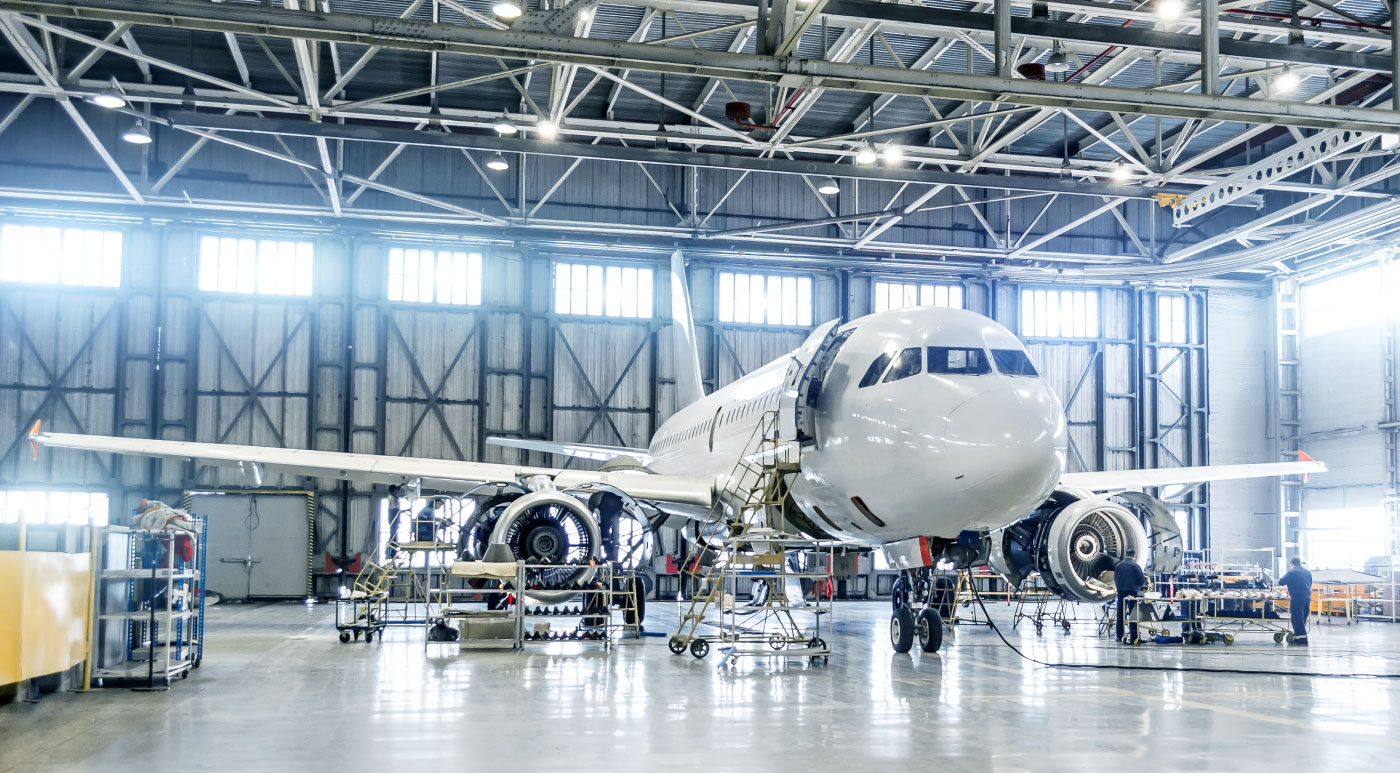
Ranked as the sixth-best public university in the United States by the U.S. News & World Report , the University of Florida is also at the top of our list when it comes to the best affordable master's in aerospace engineering. Not only will you find more than 200 different majors here to choose from, but you'll also be able to explore 150 world-class research centers and institutes.
Located in Gainesville, FL, this school is the only one in the state of Florida to have membership in the Association of American Universities. It's also classified among R1: Doctoral Universities-Very High Research Activity, a fact that underscores this school's commitment to outstanding graduate-level education.
The Master of Science in aerospace engineering at the University of Florida is offered by the Department of Mechanical and Aerospace Engineering. Home to more than 400 graduate students, this department also offers a master's in mechanical engineering as well as doctoral degrees in both aerospace engineering and mechanical engineering.
With this program, you'll be able to take courses in three broad areas of study, including dynamics, systems, and control; solid mechanics, design, and manufacturing; and thermal sciences and fluid dynamics. A total of 30 credit hours of study is required, including 18 credits in your major field of study and other courses from related technical fields. There are both thesis- and non-thesis options available.
You'll take a variety of classes such as Fundamentals of Production Engineering, Analytic Dynamics, and Advanced Manufacturing Processes, just to name a few. You may also consider adding on an additional graduate certificate to give you even more leverage when it's time to search for a job. Some of the department's most popular options include Advanced Manufacturing, Scientific Computing, Solar Energy, Energy Management, and Control Systems.
As you complete your courses, you will be able to work in faculty laboratories like the Precision Space Systems Laboratory and the Space, Automation, and Manufacturing Mechanisms Laboratory to help you gain real-world experience. These facilities are top-notch and some of the best in the country, housing state-of-the-art equipment and world-class technologies.
You will also be able to participate in student activities and organizations, many of which are campus-based chapters of national organizations. Some examples include Sigma Gamma Tau, the Solar Gators, and Dream Team Engineering.
And let's not overlook this program's affordability, either. In addition to affordable tuition, this program has graduate funding opportunities such as fellowships and student loans. You'll find that this program has an excellent return on investment with a high job placement rate, too. When you are ready to apply, you will need to submit an online application and transcripts that show you earned a bachelor's degree in engineering or a closely-related STEM discipline from a program that is ABET-accredited. You will also need to submit a statement of purpose outlining your goals, two letters of recommendation, and GRE test scores. You should have a GPA of 3.0 or higher in all of your combined undergraduate coursework, too.
OTHER NOTABLE PROGRAMS
#11. Old Dominion University
Location: Norfolk, VA
Degree: Aerospace Engineering (Engineering, M.S./M.E.)
Net Price: $12,552
Website
#12. Auburn University
Location: Auburn, AL
Degree: Master of Aerospace Engineering (Non-Thesis)
Net Price: $11,282
Website
#13. Purdue University
Location: West Lafayette, IN
Degree: Gambaro Graduate Program of Aeronautics and Astronautics
Net Price: $9,992
Website
#14. University of Notre Dame
Location: Notre Dame, IN
Degree: Aerospace Engineering: MSAE
Net Price: $53,218
Website
#15. University of Central Florida
Location: Orlando, FL
Degree: Master of Science in Aerospace Engineering (MSAE)
Net Price: $8,872
Website
#16. University of Washington-Seattle Campus
Location: Seattle, WA
Degree: Master of Aerospace Engineering
Net Price: $16,590
Website
#17. University of Michigan-Ann Arbor
Location: Ann Arbor, MI
Degree: Master of Science in Engineering in Aerospace Engineering
Net Price: $23,456
Website
#18. Missouri University of Science and Technology
Location: Rolla, MO
Degree: Master of Science in Aerospace Engineering (Thesis Option)
Net Price: $11,372
Website
#19. Mississippi State University
Location: Mississippi State, MS
Degree: Master of Science in Aerospace Engineering
Net Price: $8,650
Website
#20. Embry-Riddle Aeronautical University-Daytona Beach
Location: Daytona Beach, FL
Degree: Master of Science In Aerospace Engineering
Net Price: $18,458
Website
#21. The University of Texas at Austin
Location: Austin, TX
Degree: Master of Science in Engineering in Aerospace Engineering
Net Price: $11,742
Website
#22. Worcester Polytechnic Institute
Location: Worcester, MA
Degree: Master's in Aerospace Engineering
Net Price: $27,294
Website
#23. Ohio State University
Location: Columbus, OH
Degree: Aerospace Engineering Master of Science (MS)
Net Price: $12,425
Website
#24. University of Minnesota-Twin Cities
Location: Minneapolis, MN and Saint Paul, MN
Degree: Master of Science, Aerospace Engineering and Mechanics
Net Price: $18,583
Website
#25. Virginia Polytechnic Institute and State University
Location: Blacksburg, VA
Degree: Aerospace Engineering Master of Engineering
Net Price: $15,510
Website
#26. University of California-Irvine
Location: Irvine, CA
Degree: Master of Science Degree in Mechanical and Aerospace Engineering
Net Price: $13,344
Website
#27. California Polytechnic State University-San Luis Obispo
Location: San Luis Obispo, CA
Degree: MS Aerospace Engineering
Net Price: $11,250
Website
#28. University of Maryland-College Park
Location: College Park, MD
Degree: Master of Science in Aerospace Engineering
Net Price: $14,526
Website
#29. Case Western Reserve University
Location: Cleveland, OH
Degree: Master of Science in Aerospace Engineering or Mechanical Engineering
Net Price: $45,204
Website
#30. The University of Texas at Arlington
Location: Arlington, TX
Degree: Master's Program in Aerospace Engineering
Net Price: $9,672
Website
IF YOU ENJOYED THAT THEN CHECK OUT OUR ARTICLES ON THE BEST AFFORDABLE ONLINE MASTER'S IN COMPUTER SCIENCE & THE BEST AFFORDABLE ONLINE MASTER'S IN INDUSTRIAL ENGINEERING FROM MPG!
Source: https://www.mastersprogramsguide.com/rankings/best-affordable-masters-aerospace-engineering/
0 Response to "Easy Aerospace Grad School to Get Into"
Post a Comment